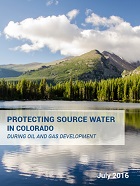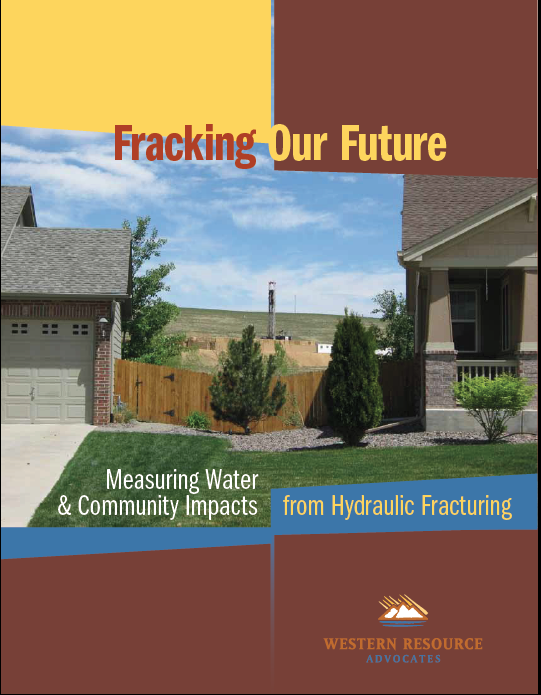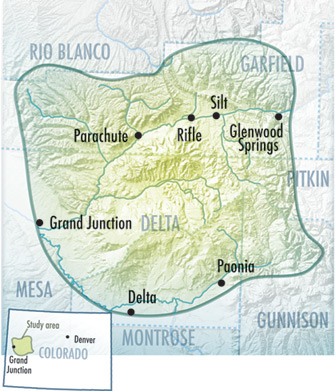| University of Colorado at Boulder | ||||
 |
||||
|
Colorado
Protecting Source Water in Colorado During Oil and Gas Development - This guide, released August 2016, is intended for water providers and community members interested in learning more about regulatory and non-regulatory measures to protect water quality. The guide outlines how oil and gas development could impact water quality, particularly the "source water" of our drinking water supplies. The focus of the report is how water providers and local governments can work with regulators and the oil/gas industry to negate potential impacts from oil and gas development to drinking water sources. Colorado Water Watch - The Colorado Water Watch (CWW) is a real-time groundwater monitoring pilot program developed by the Center for Energy Water Sustainability at Colorado State University. The monitoring system is comprised of a network of water quality sensors capable of detecting changes in groundwater quality due to natural or operational impacts. The data is monitored, gathered, analyzed and reported by CWW and posted on this website to provide information to communities in the DJ Basin.
The Water Information ProgramThe Water Information Program: To provide information to the public and community on water topics and water related issues. Colorado Oil and Gas Conservation CommissionCOGCC - Text of the rules (click on Rules) Rocky Mountain Mineral Law Foundation Workshop on Protection of Drinking Water Supply Sources - The 317B Rules The Water Information Program: To provide information to the public and community on water topics and water related issues. MontanaMontana Board of Oil and Gas - Coal Bed Methane Information Montana Department of Environmental Quality - Coal Bed Methane New MexicoNew Mexico Oil Conservation Division RulesNM Oil Conservation Division - Current and Proposed Rules NM Oil Conservation Division - Highlights of the Pit Rule Earthworks - A Conservation Perspective on the Pit Rule UtahUtah Division of Water Rights - Water Rights Utah Division of Oil, Gas and Mining Oil and Gas Program - Web site updated with news and changes in regulations WyomingWyoming Oil and Gas Conservation CommissionEnvironmental protection guides
|
||||

 Monitoring Water Quality In Areas of Oil and Natural Gas Development: A Guide For Water Well Users
Monitoring Water Quality In Areas of Oil and Natural Gas Development: A Guide For Water Well Users Fracking Our Future: Where's the Water
Fracking Our Future: Where's the Water Piceance Basin Water Quality Repository
Piceance Basin Water Quality Repository


